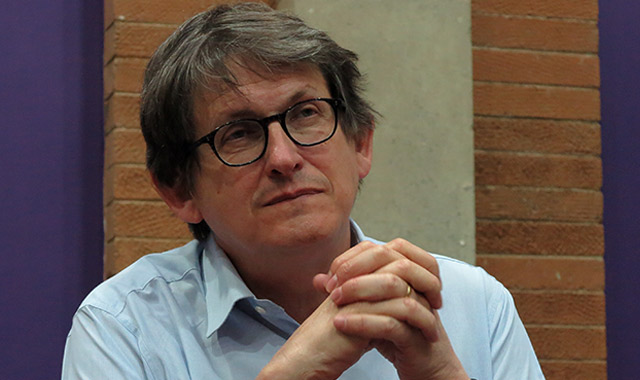
In June last year, The Guardian published the first in a series of stories that revealed a vast degree of electronic surveillance being carried out by America’s National Security Agency (NSA) and its British counterpart, GCHQ.
The newspaper did not reveal the source of the leaks at the time, but former NSA external contractor Edward Snowden made his identity known a few days later in a video interview.
Talking to students and editors at the University of the Witwatersrand, Guardian editor-in-chief, Alan Rusbridger spoke about Snowden and the impact his revelations have had on journalism. Watch the video below.
Rusbridger was appointed as editor of The Guardian newspaper in 1995. He began his career at the Cambridge Evening News, where he trained as a reporter before joining the newspaper in 1979.
Rusbridger on Wednesday spoke about his decision to go ahead with publication as well as the first meeting the news organisation had with Snowden in a Hong Kong hotel room last year.
“Once it became apparent what sort of material we had, we were faced with the dilemma: should we look at it — there is some disagreement but not much among journalists — and if we do look at it, are we going to use any of it? And lastly, are we going to talk and engage with the authorities before we publish anything,” says Rusbridger. “We decided we would look at it, we decided we would use it, and we decided we would talk — in most cases — with the authorities.”
Over the course of the following next six months, The Guardian implemented a process involving more than 100 points of contact in the American and British governments as they realised the sensitivity of the material the newspaper had in its possession. — © 2014 NewsCentral Media




